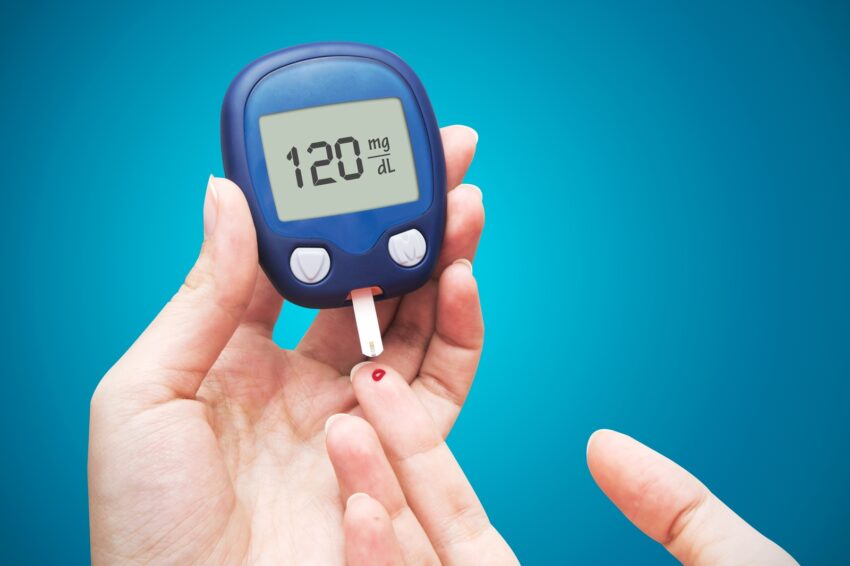How to Prevent Type 2 Diabetes: 11 Methods
Type 2 diabetes is a chronic condition characterized by high blood sugar levels, insulin resistance, and impaired insulin production. While certain risk factors for type 2 diabetes, such as genetics and age, are beyond your control, there are several lifestyle changes and preventive measures you can take to reduce your risk of developing this condition. Here are 11 methods to help you prevent type 2 diabetes:
Maintain a Healthy Weight
Achieve and Maintain a Healthy Weight
Maintaining a healthy weight through a balanced diet and regular physical activity is one of the most effective ways to prevent type 2 diabetes. Aim for a body mass index (BMI) within the healthy range (18.5 to 24.9) and focus on losing weight if you are overweight or obese.
Follow a Balanced Diet
Follow a diet rich in fruits, vegetables, whole grains, lean proteins, and healthy fats. Limit your intake of refined carbohydrates, sugary foods and beverages, saturated and trans fats, and processed foods. Choose foods with a low glycemic index to help stabilize blood sugar levels.
Stay Active
Engage in Regular Physical Activity
Exercise regularly to help control weight, improve insulin sensitivity, and lower blood sugar levels. Aim for at least 150 minutes of moderate-intensity aerobic activity or 75 minutes of vigorous-intensity activity each week, along with muscle-strengthening activities on two or more days per week.
Monitor Your Blood Sugar
If you have prediabetes or are at high risk for type 2 diabetes, monitor your blood sugar levels regularly. Early detection and intervention can help prevent or delay the onset of diabetes. Follow your healthcare provider’s recommendations for testing frequency and target blood sugar levels.
Limit Alcohol Consumption
Limit your intake of alcoholic beverages, as excessive alcohol consumption can increase the risk of type 2 diabetes. If you choose to drink alcohol, do so in moderation—up to one drink per day for women and up to two drinks per day for men—and avoid binge drinking.
Quit Smoking
Smoking is a significant risk factor for type 2 diabetes and can worsen complications associated with the condition. If you smoke, seek support and resources to quit smoking. Quitting smoking can improve insulin sensitivity and reduce the risk of diabetes-related complications.
Manage Stress
Chronic stress can contribute to insulin resistance and increase the risk of type 2 diabetes. Practice stress-reduction techniques such as deep breathing, meditation, yoga, or tai chi to promote relaxation and improve overall well-being.
Get Quality Sleep
Poor sleep quality or insufficient sleep duration may increase the risk of type 2 diabetes. Aim for 7-9 hours of quality sleep per night and practice good sleep hygiene habits, such as maintaining a regular sleep schedule, creating a comfortable sleep environment, and limiting screen time before bedtime.
Stay Hydrated
Drink an adequate amount of water throughout the day to stay hydrated. Avoid sugary beverages and excessive consumption of caffeinated drinks, as they can contribute to dehydration and may increase the risk of diabetes.
Screen for Diabetes Risk
Be proactive about your health by getting regular check-ups and screenings for diabetes risk factors, such as high blood pressure, high cholesterol, and family history of diabetes. Early detection and intervention can help prevent or delay the onset of type 2 diabetes.
Seek Professional Guidance
Consult with your healthcare provider or a registered dietitian for personalized guidance on diabetes prevention. They can help you develop a tailored plan based on your individual risk factors, health status, and lifestyle preferences.
FAQs About Preventing Type 2 Diabetes
Can type 2 diabetes be prevented entirely?
While type 2 diabetes cannot always be prevented entirely, adopting healthy lifestyle habits can significantly reduce the risk of developing the condition. By maintaining a healthy weight, following a balanced diet, staying active, and managing other risk factors, many people can prevent or delay the onset of type 2 diabetes.
What are the main risk factors for type 2 diabetes?
The main risk factors for type 2 diabetes include obesity or overweight, physical inactivity, unhealthy diet, family history of diabetes, age (risk increases with age), ethnicity (some ethnic groups are at higher risk), and certain medical conditions such as prediabetes, polycystic ovary syndrome (PCOS), and gestational diabetes.
Can type 2 diabetes be reversed?
In some cases, type 2 diabetes may be reversible or manageable through lifestyle changes such as weight loss, dietary modifications, regular exercise, and medication management. However, individual results may vary, and it’s essential to work closely with healthcare providers to develop a personalized treatment plan.
Are there specific foods that can help prevent type 2 diabetes?
While no single food can prevent type 2 diabetes on its own, following a balanced diet rich in fruits, vegetables, whole grains, lean proteins, and healthy fats can help reduce the risk of developing the condition. Foods with a low glycemic index and high fiber content are particularly beneficial for blood sugar control.
Is it possible to prevent type 2 diabetes if it runs in my family?
While genetics may play a role in type 2 diabetes risk, lifestyle factors such as diet, exercise, and weight management can also significantly influence your risk of developing the condition. By adopting healthy habits and making proactive choices, you can help reduce your risk, even if diabetes runs in your family.
Can supplements help prevent type 2 diabetes?
While certain supplements and vitamins may offer benefits for overall health, there is limited evidence to support their use specifically for preventing type 2 diabetes. It’s essential to focus on lifestyle factors such as diet, exercise, and weight management as the primary means of reducing diabetes risk, and consult with healthcare providers before starting any new supplements.
- Lip Fillers Explained: A Beginner’s Guide For UK Residents - May 31, 2025
- Light Eyes Ultra – Dark Circles Treatment Near Merstham, Surrey - May 31, 2025
- What The Fake Plumping Lip Filler - May 31, 2025




